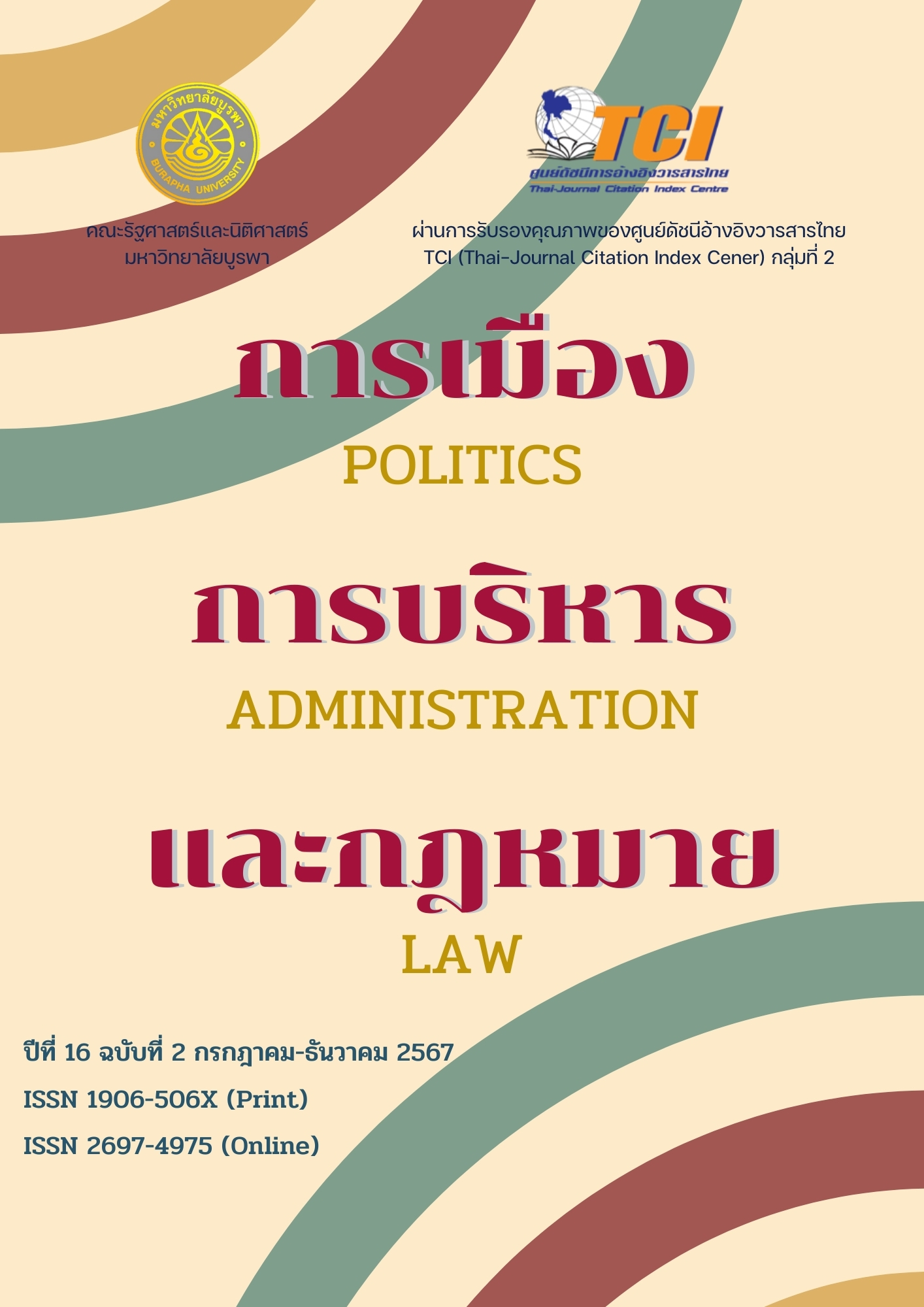Entangled Governance: The Role of Social Networks and Transaction Costs in Thailand's Corruption Conundrum
Keywords:
Governance, Social Networks, Systemic Corruption, Transaction CostsAbstract
This investigation elucidates the complex interrelationships between social networks, transaction costs, and their facilitation of corruption within Thailand's governance systems. Utilizing a comprehensive analytical framework, the study reveals that entrenched social networks substantially augment transaction costs, thereby perpetuating systemic corruption across various administrative levels. The findings delineate the mechanisms through which these networks operate, highlighting their role in both the perpetuation and the entrenchment of corrupt practices. Implications derived from this analysis are pivotal for refining existing anti-corruption frameworks and suggest the necessity for innovative policy interventions that target the underlying socio-economic structures facilitating corruption. This study advocates for a holistic reform approach, emphasizing enhanced transparency and strengthened accountability within these networks.
References
Burt, R. S. (2004). Structural Holes and Good Ideas. American Journal of Sociology, 110(2), 349-399.
Callahan, W. A. (2005). Social Capital and Corruption: Vote Buying and the Politics of Reform in Thailand. Perspectives on Politics, 3(3), 495-508.
Coase, R. H. (1995). The nature of the firm. Macmillan Education.
Coleman, J. S. (1988). Social capital in the creation of human capital. American Journal of Sociology, 94, S95-S120.
Dixit, A. (2009). Governance institutions and economic activity. American Economic Review, 99(1), 5-24.
Gamper, M. (2022). Social Network Theories: An Overview. In: Klärner, A., Gamper, M., Keim-Klärner, S., Moor, I., von der Lippe, H., Vonneilich, N. (eds) Social Networks and Health Inequalities. Berlin, German: Springer.
Granovetter, M. (1985). Economic Action and Social Structure: The Problem of Embeddedness. In The sociology of economic life (pp. 22-45). London: Routledge.
Hadiz, V. (2010). Localising Power in Post-Authoritarian Indonesia: A Southeast Asia perspective. Redwood City, CA: Stanford University Press.
Khwaja, A. I. (2001). Can Good Projects Succeed in Bad Communities? Collective Action in the Himalayas. KSG Faculty Research Working Papers Series RWP01-043, March 2001.
Khwaja, A. I. (2004). Is increasing Community Participation Always a Good Thing? Journal of the European Economic Association, 2(2-3), 427-436.
Klitgaard, R. (1988). Controlling corruption. Berkeley, CA: University of California Press.
Larsson, O. (2019). A Theoretical Framework for Analyzing Institutionalized Domination in Network Governance Arrangements. Critical Policy Studies, 13(1), 81-100.
Lazer, D., Baum, M. A., Benkler, Y., Berinsky, A. J., Greenhill, K. M., Menczer, F., ... & Zittrain, J. L. (2020). The Science of Fake News: Addressing Fake News Requires a Multidisciplinary Effort. Science, 359(6380), 1094-1096.
Mischen, P. A., & Jackson, S. K. (2017). Connecting the Dots: Applying Complexity Theory, Knowledge Management and Social Network Analysis to Policy Implementation. Public Administration Quarterly, 41(3), 467-498.
Mungiu-Pippidi, A. (2015). The Quest for Good Governance: How Societies Develop Control of Corruption. Cambridge, UK: Cambridge University Press.
North, D. C. (1990). Institutions, Institutional Change and Economic Performance. Cambridge, UK: Cambridge University Press.
Ostrom, E. (2010). Beyond Markets and States: Polycentric Governance of Complex Economic Systems. American Economic Review, 100(3), 641-672.
Ostrom, E. (2015). Governing the Commons: The Evolution of Institutions for Collective Action. Cambridge, UK: Cambridge University Press.
Peisakhin, L., & Pinto, P. (2010). Is Transparency an Effective anti-corruption strategy? Evidence from a Field Experiment in India. Regulation & Governance, 4(3), 261-280.
Peters, B. G., & Pierre, J. (1998). Governance without government? Rethinking public administration. Journal of Public Administration Research and Theory, 8(2), 223-243.
Phongpaichit, P., & Piriyarangsan, S. (1994). Corruption and Democracy in Thailand. The Political Economy Centre, Chulalongkorn University.
Putnam, R. (1993). Making Democracy Work: Civic Traditions in Modern Italy. New Jersey: Princeton University Press.
Quah, J. S. (Ed.). (2010). Public administration Singapore-style. Bingley, UK: Emerald Group Publishing Limited.
Refakar, M., & Cárdenas, G. C. (2023). Corruption and Transactional Crime: Building up Effective Accountable Inclusive and Transparent Institutions as Ground for Sustainable Finance. In Sustainable Finance and Financial Crime (pp. 165-188). Cham: Springer International Publishing.
Rock, M. T., & Bonnett, H. (2004). The Comparative Politics of Corruption: Accounting for the East Asian Paradox in Empirical Studies of Corruption, Growth and Investment. World Development, 32(6), 999-1017.
Rothstein, B. O., & Teorell, J. A. (2008). What is Quality of Government? A Theory of Impartial Government Institutions. Governance, 21(2), 165-190.
Shelanski, H. A., & Klein, P. G. (1995). Empirical Research in Transaction Cost Economics: a Review and Assessment. The Journal of Law, Economics, and Organization, 11(2), 335-361.
Transparency International. (2018). Corruption perceptions index. Retrieved December 22, 2023, From https://www.transparency.org/en/cpi/2018
Tsai, L. L. (2007). Solidary Groups, Informal Accountability, and Local Public Goods Provision in Rural China. American Political Science Review, 101(2), 355-372.
Downloads
Published
Issue
Section
License

This work is licensed under a Creative Commons Attribution-NonCommercial-NoDerivatives 4.0 International License.






